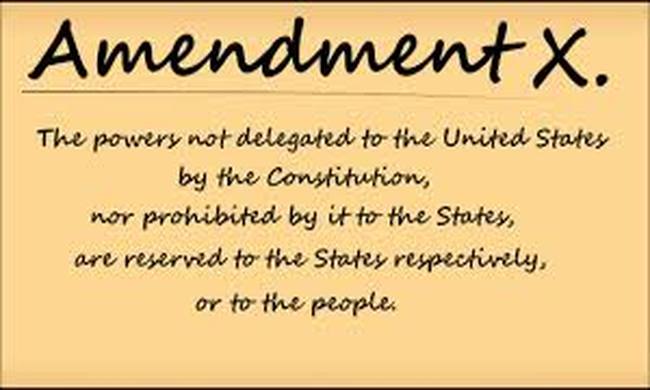Amid all the public attention to cases involving wedding cakes and labor unions, little public attention has focused on another important decision issued by the Supreme Court this past term. The case is Murphy v. NCAA. It contains good (and bad) news for those who hope (or fear) the Court will limit federal power to the scope the Constitution actually permits.
The take-away from the case is that while a strong majority of justices are determined to protect the states from direct federal commands, only Justice Thomas—not Gorsuch, Alito, or any of the others—is willing to restrict federal economic power to match the Constitution’s design.
There is little doubt that those who adopted the Constitution understood that governance of recreational activities, such as sports, was reserved to the states. Regulation of in-state gambling, like other moral issues, similarly was outside the federal sphere. By using its Commerce Power, Congress might restrict gambling across state lines. But unless people were shipping lottery tickets through the post office or otherwise buying and selling across state borders, the Constitution determined that gambling was strictly a state issue.
But Congress seems to know no restraint. In 1992 when a public furor arose about sports betting, Congress passed the Professional and Amateur Sports Protection Act (PASPA). Among its provisions was one prohibiting states from “authorizing” sports betting. In other words, PASPA was a direct order telling state legislatures what kind of laws they could or could not adopt.
The Supreme Court voided PASPA on two grounds. First, it found that its order to state authorities violated the rule against the federal government dictating to state governments. True, the federal government may bribe states with funds and otherwise influence state decision making. They may even regulate state conduct when doing so as part of a scheme that includes regulation of the private sector. (For example, Congress may order states to pay the minimum wage.) But the Court has drawn the line at direct federal commands targeting state authorities. This is called the “anti-commandeering” doctrine.
Significantly, this part of the Court’s decision garnered the support of seven of the nine justices, including liberals Elena Kagan and Stephen Breyer—both of whom joined the majority in 2012 when it struck down Congress’s direct order that the states expand their Medicaid programs.
The Court further found that the parts of PASPA that otherwise would have been valid also had to fall because they were not “severable” from the invalid federal mandate. All four of the court’s liberals disagreed with this decision. And Justice Thomas joined the five justice majority only with regrets.
Significantly, however, eight of the nine went out of their way to emphasize that Congress could regulate all gambling directly. Justice Alito stated flatly, “Congress can regulate sports gambling directly . . . . ” In dissent, Justice Ginsburg opined, “Nor is there any doubt that Congress has power to regulate gambling on a nationwide basis, authority Congress exercised in PASPA.” These unqualified statements about congressional authority over gambling were unnecessary to decision of the case, and they were rendered without any constitutional or historical analysis whatsoever.
Only Justice Thomas was more cautious: “Unlike the dissent, I do ‘doubt’ that Congress can prohibit sports gambling that does not cross state lines.”
Justice Thomas should do more than “doubt.” In fact, the evidence is crystal clear that, with a few exceptions around the edges, control of gambling is a state, not a federal issue.
But note who joined the “gambling is a federal power” decrees: Not just liberals Breyer, Ginsburg, Kagan, and Sotomayor. Add to them Justice Kennedy who expressed many years before that he would concede to Congress almost unlimited power over economic activity. And add Alito himself, Chief Justice Roberts, and Justice Gorsuch—all supposedly originalists.
The fact is that under no possible scenario in the foreseeable future will a majority of the Supreme Court re-establish constitutional limits on a runaway Congress. That will have to be done by the people, acting through the Constitution’s Article V amendment process.








